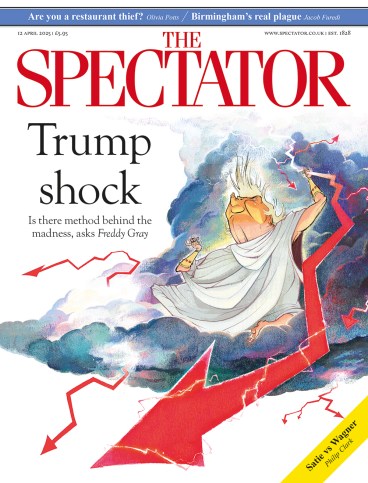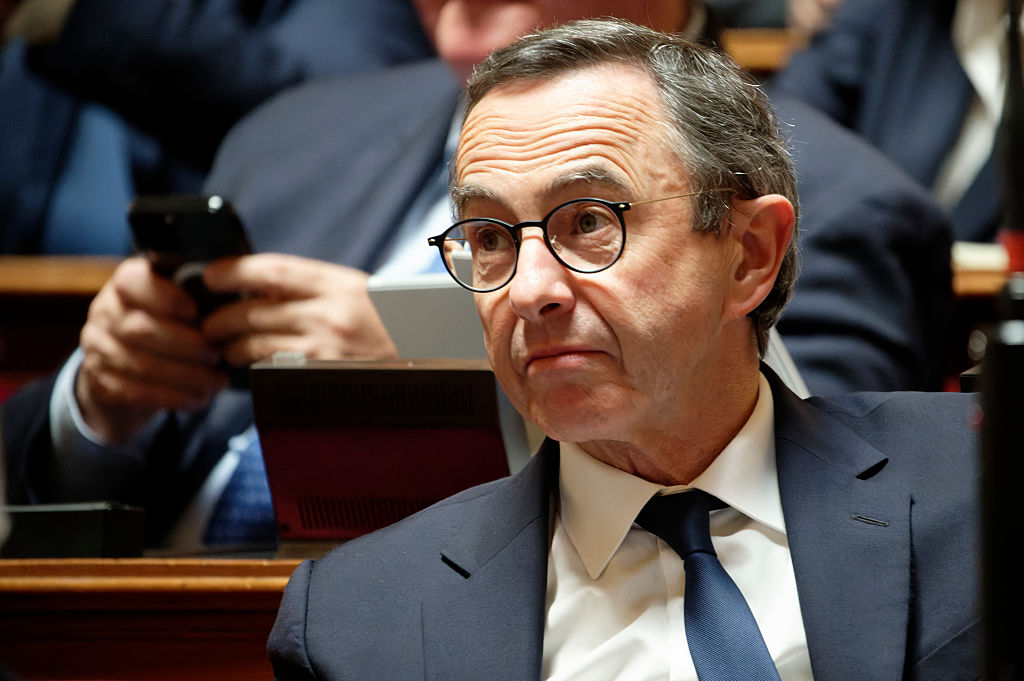
Since Donald Trump returned to the White House, Keir Starmer has struggled to set the agenda. The latest attempt came with the Spring Statement, but events soon overtook that when the US President announced his mass tariffs, which could derail Rachel Reeves’s spending plans.
It is not yet 100 days into Trump’s secondterm, and ministers have already had to adjust rapidly to the new normal. Even without the unpredictability of decisions from the White House, government communications have proved challenging. The long-standing No. 10 director of communications, Matthew Doyle, recently stepped down. At a recent away day, his successor James Lyons spoke on the importance of moving to digital platforms such as social media and podcasts as well as traditional outlets. It reflects the changing media landscape in the US. As one government source puts it, MAGA has ‘gone all in’ on X.
Comms is just one of the government’s problems. The more immediate challenge is how to react to a global trade war which shows little sign of abating. In the grand scheme of things, Britain was well treated on ‘Liberation Day’ – in the lowest tariff band of 10 per cent. UK officials credit Starmer’s diplomacy, but there were other factors. ‘The point was made that the UK should get something for making the right choice in 2016,’ says a figure in Trump’s orbit.
Britain was at least prepared for tariffs. ‘We’ve always taken the view we should treat Trump seriously – he’s spoken about tariffs so much, this guy is clearly going to do it,’ says a government source. Ministers weren’t surprised, even if some of Trump’s supporters were. ‘The guys walking down Wall Street wearing MAGA caps must be confused now,’ says a party figure.
The trickier task is predicting what Trump might do next. ‘On the one hand, you can use tariffs for the reindustrialisation of the US to bring back manufacturing,’ says a government source. ‘On the other hand, you can remove tariffs if these countries sort out trade deficits.’ There’s an alternative theory: it’s the Trump show, it doesn’t need to make sense.
Inside No. 10, the hope is that Trump sees a purpose in negotiating. The plan is simple: don’t stop talks until all tariffs are lifted. Negotiations started months ago but are now moving at ‘light speed’ compared with the normal pace of trade discussions. There are questions about how mutually beneficial a new ‘economic deal’ will be and whether it will just be about making big concessions to Trump. Tech policy is a key part of the discussions. Both the Digital Services Tax, under which big tech companies pay 2 per cent of their UK revenues, and the Online Safety Act, which aims to curtail the reach of such businesses, are under review. Both are bugbears of US tech billionaires – including Elon Musk.
It is the Business Secretary Jonathan Reynolds who is leading the negotiations at cabinet level, but government sources say that behind the scenes he is working closely with Reeves and Starmer. Reeves is also in regular contact with her US counterpart, Scott Bessent, the Treasury Secretary. The pair may meet later this month when the Chancellor visits Washington DC.

The government is still trying out its Trump whisperers. Much of the work inevitably falls to the Prime Minister, but there are other key players. Peter Mandelson, the new British ambassador to Washington, is taking on a central role in the trade talks, pushing US officials and aides towards a deal. In London, Jonathan Powell – Tony Blair’s former chief of staff and Starmer’s national security adviser, who is profiled in Paul Wood’s article – is working on US relations along with the Foreign Secretary David Lammy. Lammy’s ties to Trumpworld figures are evident. He recently spent an afternoon with the Vice-President J.D. Vance, and he knows Elbridge Colby, the foreign policy specialist confirmed this week to the Pentagon. Then there is Varun Chandra, the Prime Minister’s special business adviser, who has also joined in the discussions. Between 2019 and 2024 he was a managing partner of Hakluyt, the consultancy founded by former MI6 intelligence officers.
The hope is that a deal can be agreed by the end of the month, but aides are avoiding talk of deadlines for fear of increasing tensions. There is no wish to have the type of negotiations that dominated Brexit: all the drama of ‘going into the tunnel’. There are also concerns about last-minute demands on agriculture: the Tories are poised to attack if so. However, Minette Batters, formerly of the National Farmers’ Union, has been hired to advise Labour on rural affairs, which suggests any big free-trade capitulation on agriculture is unlikely. Batters previously railed against a trade deal over American chlorinated chicken.
Starmer and his aides hope there are political opportunities here, but the pitfalls are more immediately obvious. While Britain may have got off lightly compared to others, a global trade war will still hurt the economy and could remove Reeves’s fiscal headroom. This week, Starmer insisted that he would keep Labour’s manifesto promise not to increase income tax, national insurance or VAT. Labour MPs would not get behind further spending cuts. Some fear a work-around: Reeves’s pledge may not rule out freezing current income thresholds if things get tight. Her credibility would be shot if she changed her fiscal rules. ‘You would need a different chancellor to do that,’ says one MP.
However, the perception that the world is becoming more unpredictable gives Starmer a bit of room to act. The announcement this week about the relaxation of electric car targets was long planned, but it could be brought forward under the guise of adapting to the changing politics. ‘Keir has been saying for a long time that a new settlement is required,’ says a government source. ‘Globalisation brought a lot of benefits to this country, but it also had a negative effect in areas. How can we get GDP higher? The answer has to be to create blue collar jobs and use industrial strategy.’
Trump has created an environment that forces decisions to be made. Or as one Labour veteran puts it: ‘Keir started off in politics as the king of international law, and now he is having to embrace the nation state.’








Comments